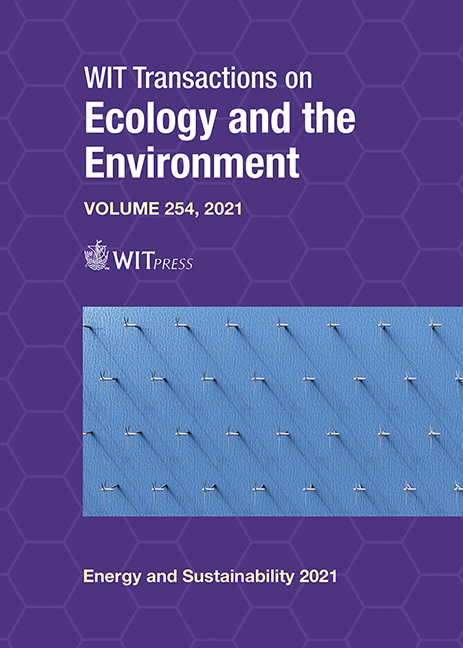DECHLORINATION OF PLASTIC-RICH FRACTIONS REJECTED FROM WASTE ELECTRIC AND ELECTRONIC EQUIPMENT RECYCLING PLANTS BY MEANS OF STEPWISE PYROLYSIS FOR VALORIZATION
Price
Free (open access)
Transaction
Volume
254
Pages
10
Page Range
81 - 90
Published
2021
Size
670 kb
Paper DOI
10.2495/ESUS210081
Copyright
Author(s)
BORJA B. PEREZ-MARTINEZ, ALEXANDER LOPEZ-URIONABARRENECHEA, ADRIANA SERRAS-MALILLOS, ESTHER ACHA, MIREN I. MARTÍNEZ-SANTOS, AITZIBER IRIONDO, BLANCA M. CABALLERO
Abstract
Waste from Electric and Electronic Equipment (WEEE) is a rapid growing waste stream, with an 18 wt. % increase from 2014 to 2019. The great polymeric nature of this stream makes it prone to be used as feed in processes for the production of alternative fuels. However, the presence of halogens in the formula of the polymers lead to their release when combusted, and combined with the presence of organic compounds, to the production of dioxins and furans, strong pollutants for humans and the environment. In this work a rejected stream from a WEEE recycling plant was studied to determine the suitability of a pyrolysis process for the production of alternative liquid fuel. The initial analysis of the sample revealed an 80 wt. % of volatile matter coming from the high polymeric nature, which was mostly composed of styrene and other thermoplastics, and 7,767 ppm of chlorine. Two main temperature driven degradation steps were found at 300°C and 420°C. The pyrolysis temperature was set at 500°C, under a heating rate of 15°C/minute with a 30 minute dwell time, and the system was purged with a nitrogen flow of 1 dm3/min. Under these parameters a 70 wt. % liquid yield was achieved, with 5,375 ppm chlorine content. In order to lower the chlorine concentration in the resulting products, a dechlorination step was studied at 300°C for which two isotherm times were tested, at 30 and 60 minutes, in order to find the most efficient one. For the 60 minutes dechlorination step a significant drop of chlorine in the liquids was found.
Keywords
electric and electronic equipment, WEEE, WEEE plastic-rich fractions, pyrolysis, stepwise, dechlorination, recycling, circular economy





